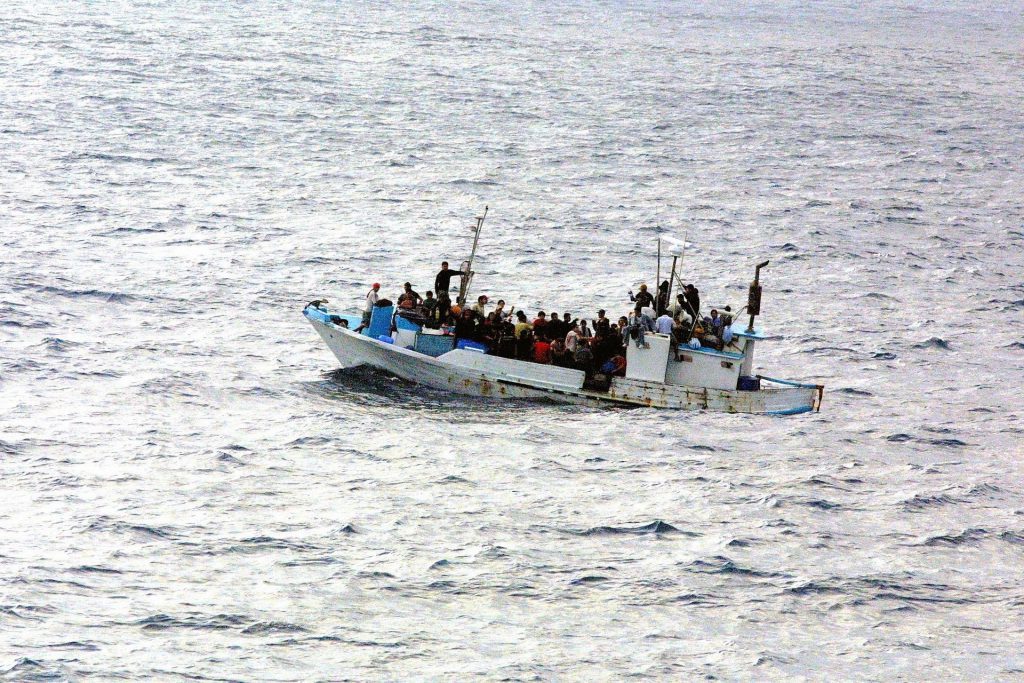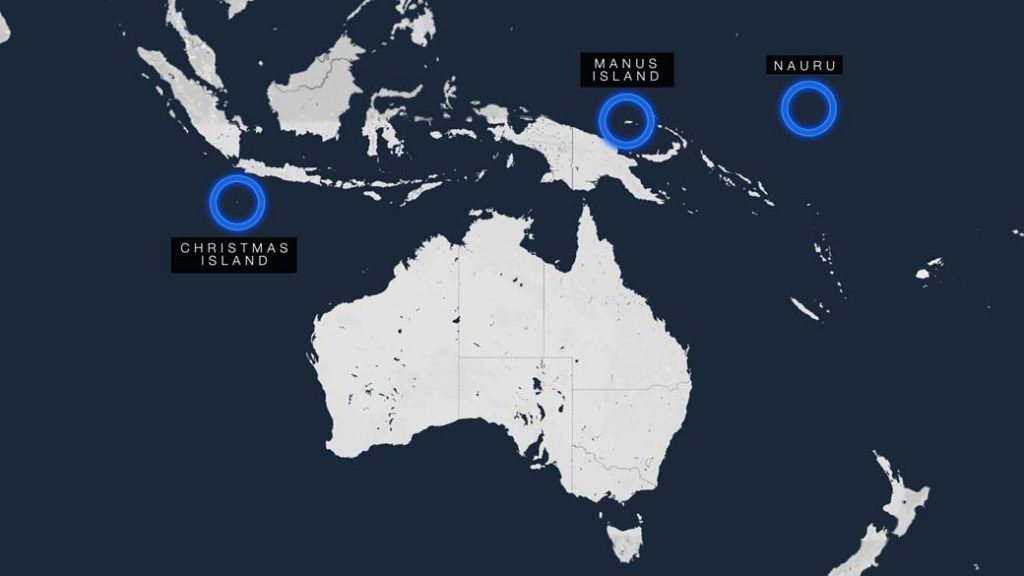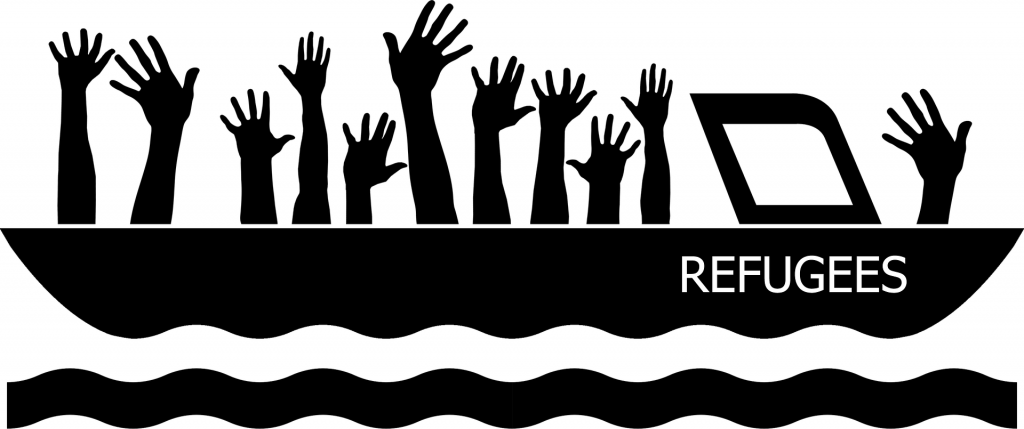This series of articles elucidates the consequences of what limited access to information and the ever-growing spread of misinformation have on the most vulnerable groups of the society.
Imagine that you have just taken a life-threatening journey to a foreign country to seek asylum. Not only your boat has sunk in the middle of the ocean, but you have also been detained and transported to an island with minimal infrastructure to be essentially imprisoned, though you have not actually committed a crime. On top of this, the one and only means for you to keep in touch with your family and let them know you are alive, is taken away from you. Your mobile phone is, or was, your lifeline.

Claiming it to be a national security threat, and therefore a necessity to keep Australians safe, the Federal Government has introduced a Migration Amendment (Prohibiting Items in Immigration Detention Facilities) Bill 2020 that would give the Australian Border Force (ABF) authority to search immigrant detainees and seize items including mobile phones.
Currently in the hands of the Senate, the proposed amendment to the law is strongly opposed by refugee advocates. Hashtag #NoPhoneNoLife circulates on Twitter and urges politicians to vote against this bill.
Australia’s detention policies are some of the strictest in the world. Any non-Australian citizen who arrives in Australia will face mandatory, indefinite detainment. In practice this policy affects mainly asylum seekers who arrive by boat: In most cases these people are taken to either Manus Island, Christmas Island or Nauru, all of which are thousands of kilometres off the coast of Australia. Under the Australian law, indefinite detention is permitted, resulting in asylum seekers being detained for several months, often for years. Read here more about the history of Australia’s offshore detention policy.

While in mandatory indefinite detention, a mobile phone is a lot more to an asylum seeker than just a device to call home – not to say that that in itself is not already crucial for mental wellbeing. But a phone can be the only channel to contact a lawyer, a caseworker, or a doctor, and moreover the only way to have access to information outside of the island. A RAND research finds that refugees often prioritize their phone and internet connection above clothing, education and even health care: “– refugees have been known to trade food rations for airtime and data.” A Saudi Arabian journalist seeking asylum in Australia told Australian Broadcasting Corporation (ABC) only a few days ago how he used his mobile phone to contact an Australian journalist friend overseas, who was able to connect him with a human rights lawyer.
“Without a phone I would not have been able to make that connection,” Sultan said. “But also the phone was very, very important later on down the line because I was able to do emails, I was able to make phone calls and I was able to get in touch with my journalist friends from around the world.” (ABC)

Denying access to the internet, whether it is through banning mobile phones, blocking websites or shutting internet down completely for an indefinite period is a growing method of suppression used by governments around the world. These actions are increasingly targeted at vulnerable groups such as asylum seekers and refugees. Allowing this bill to pass would mean that the Australian government facilitates policies of blanket restrictions – by hindering access to internet of those seeking asylum – and would therefore join the growing number of countries that violate peoples’ access to information during the COVID-19 pandemic.
The bill has already passed the House of Representatives and is now waiting for the Senate to vote for it in October. Should the bill pass, the Immigration Minister will be able to prohibit items that might be a risk to the health, safety or security of persons in the facility, or to the order of the facility, including mobile phones, SIM cards and internet-connected devices.
Contrary to this statement, the opposers to this bill see the law to stem from a desire to keep the asylum seekers silenced. As Australian Human Rights Commission (AHRC) caseworker Nina Field told Special Broadcasting Service (SBS), the law is a move to “keep people living in detention out of sight and out of mind“. Throughout the past years, mobile phones have been crucial in recording living conditions and wrongdoings within the facilities and communicating those to the outside world.

Having said that, the Australian government has also benefited from asylum seekers sharing their maltreatment and dreadful living conditions in detention. The conservatives have been able to use it to strengthen their narrative: Do not come to Australia to seek asylum, or this is how you will be treated.
An example of this is Kurdish Iranian journalist and a human rights activist Behrouz Boochani. He published several articles and wrote a book No Friend but the Mountains: Writing from Manus Prison (2018) while in detention on Manus Island only by using WhatsApp, Facebook and Twitter on his mobile phone. Due to safety concerns, he used a pseudonym to begin with; however, his articles gained attention by journalists and human rights advocates around the world. Without the phone he would not have been able to spread awareness of the detainees’ life in detention. His stories gained international attention that resulted in criticism against Australian policies but, on the other hand, revealing these realities to the public also helped to strengthen Australia’s closed borders narrative. To learn more I recommend watching RightsCon Online 2020 talk between Behrouz Boochani and Dr Omid Tofighian, researcher at the University of Sydney.
Fast-forward to 2020: The COVID-19 pandemic emerged and continues to spread. With ever more tight restrictions put in place under the pandemic, people’s fundamental rights to freedom of expression, privacy, access to information, and health are impacted. Immigration detention centres have not allowed visitors since March. Without a mobile phone and no visitors allowed, the detainees have next to no access to information.
Mandatory detention has been under vigorous debate since 1992. Its supporters claim it to be a requisite to protect Australia’s borders while the critics argue that it is inhumane, ineffective and contrary to the international refugee law. The bottom-line is that the purpose of immigration detention should by no means be to punish people or to deprive them from their basic human rights such as access to information and freedom of speech. But since about half of the population of the world are online, regulating the internet has become a powerful tool to control civil society, especially the most vulnerable groups. The spread of fake news and misinformation, concerns over national security and apprehension towards the fast spread of hate speech online have justified governments to one way or another hinder access to internet.¹
¹ Selva, M. Reaching for the off switch. (2019). Index on Censorship. SAGE publications. 48(3):19–22.


